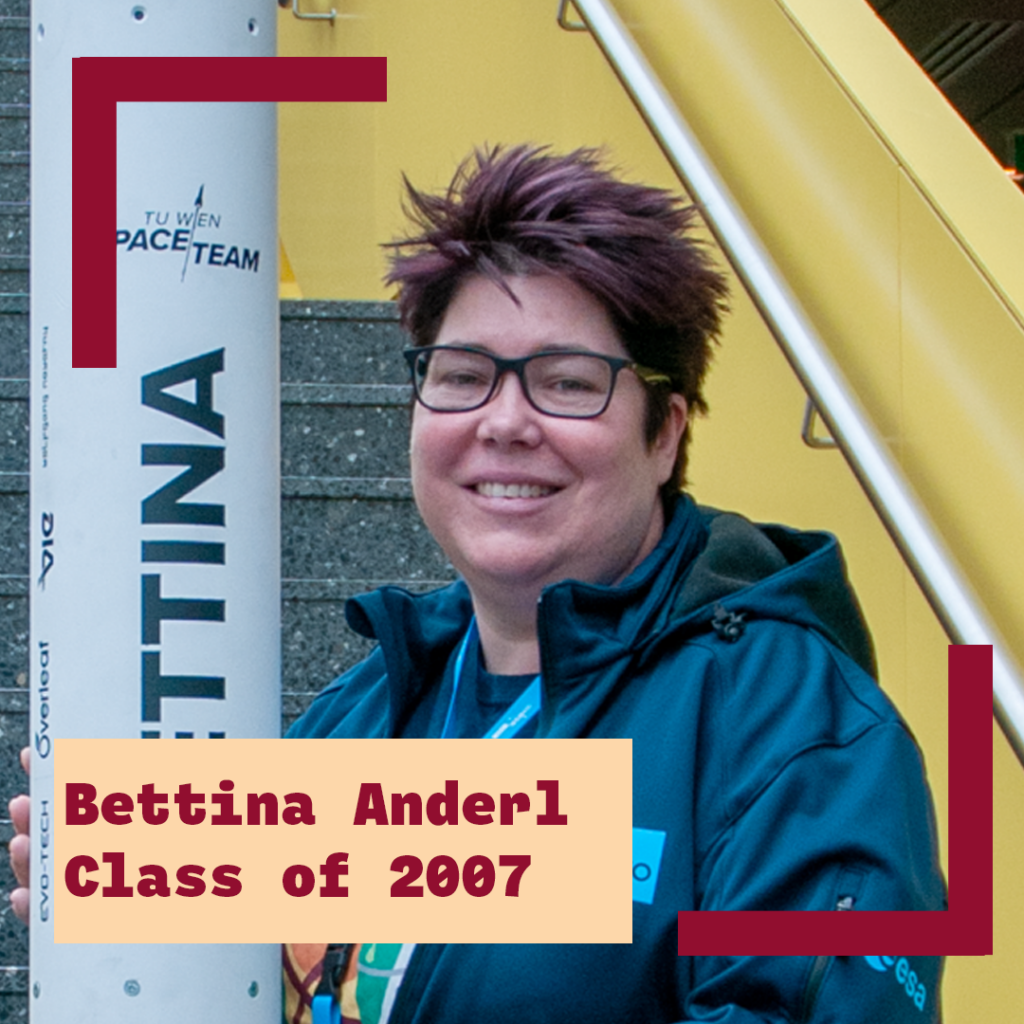The Space Explainer

Bettina Anderl studied Lehramt at the Faculty after having finished a degree in astronomy. After years of teaching, she found an exciting opportunity managing the European Space Education Resource Office Austria in Linz. Her story is one of bringing your passion into new challenges.
Bettina has always been drawn to the stars. She first pursued a degree in astronomy, immersing herself in the complexities of the cosmos. But as she advanced toward a PhD, she began to grapple with a difficult reality: an academic career, particularly for a woman considering starting a family, was fraught with uncertainty. She sought out advice from female researchers at a conference, and their responses only reinforced her concerns. Faced with the challenge of balancing professional aspirations with stability, she pivoted toward teaching, enrolling in Lehramt on mathematics and physics.
From 2008 to 2020, Bettina worked as a teacher in Oberösterreich, finding joy in bringing scientific concepts to life for her students. Then, a social media post changed everything. The European Space Education Resource Office (ESERO) Austria was looking for a new manager. ESERO, an initiative of the European Space Agency (ESA), seeks to spark curiosity about STEM by using space exploration as a gateway to learning. The program supports teachers with innovative educational materials, workshops, and hands-on experiences, bridging the gap between space science and the classroom. Active in 22 ESA member states, ESERO tailors its activities to national curricula, inspiring students to pursue careers in science and technology.
Bettina embraced the opportunity, trading her classroom for a leadership role in space education. Now based at Ars Electronica in Linz—one of Austria’s most renowned science and technology hubs—she oversees ESERO’s initiatives, juggling emails, phone calls, event planning, and educational outreach. From organizing teacher symposia to developing new programs, her work is a fusion of science, communication, and strategic planning.
Reflecting on how her studies prepared her for this role, Bettina emphasizes the importance of “connecting the dots”—synthesizing complex data into meaningful insights. She also credits the collaborative spirit of physics research, where working closely with peers fostered professional relationships that continue to support her today. Additionally, practical skills learned during her academic years—like writing detailed reports, understanding programming basics, and maintaining meticulous attention to detail—have proven invaluable in managing large-scale educational programs and communicating scientific concepts to younger audiences.
Three Tips from Bettina (ESERO Austria) for Physics Students
1. Get Familiar with Your Dream Field: If there’s a specific area that excites you, dive into it. Build connections, stay informed, and immerse yourself in the key topics. The more you engage, the smoother your path will be.
2. Share What You Love: Passion is contagious. Whether through conversations with friends or public presentations, communicating your interests will sharpen your ability to explain complex ideas. It might even open unexpected career doors.
3. Think Outside the Box: One of the most valuable things you can bring to a new job are fresh perspectives. Once settled, it is important to reconsider how things are done, as it is the best way to find innovative solutions to problems one might not have even considered before.
While Bettina values her academic journey, she acknowledges a gap in practical life skills training. How do you negotiate a first job contract? How do you navigate taxes? These were absent from her university experience—something she hopes future students have better access to nowadays.
Ultimately, Bettina believes that the defining trait of anyone working in science education is an unshakable enthusiasm for discovery. “You need to radiate passion,” she says. “If you can ignite that spark in students, they’ll see the wonder of science for themselves.” Just as crucial is the ability to adapt to different audiences, finding the right way to communicate complex topics in an accessible and engaging manner. She encourages those interested in science outreach to bring their own ideas to the field—after all, fresh perspectives drive innovation.
Looking back, Bettina sees her career as proof that a science degree is not just a path to one destination, but a toolkit for navigating multiple futures. Her story is one of reinvention, proving that sometimes, the best way to follow your passion is to chart a new course entirely.